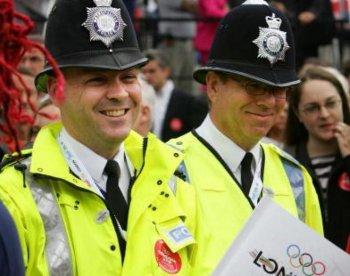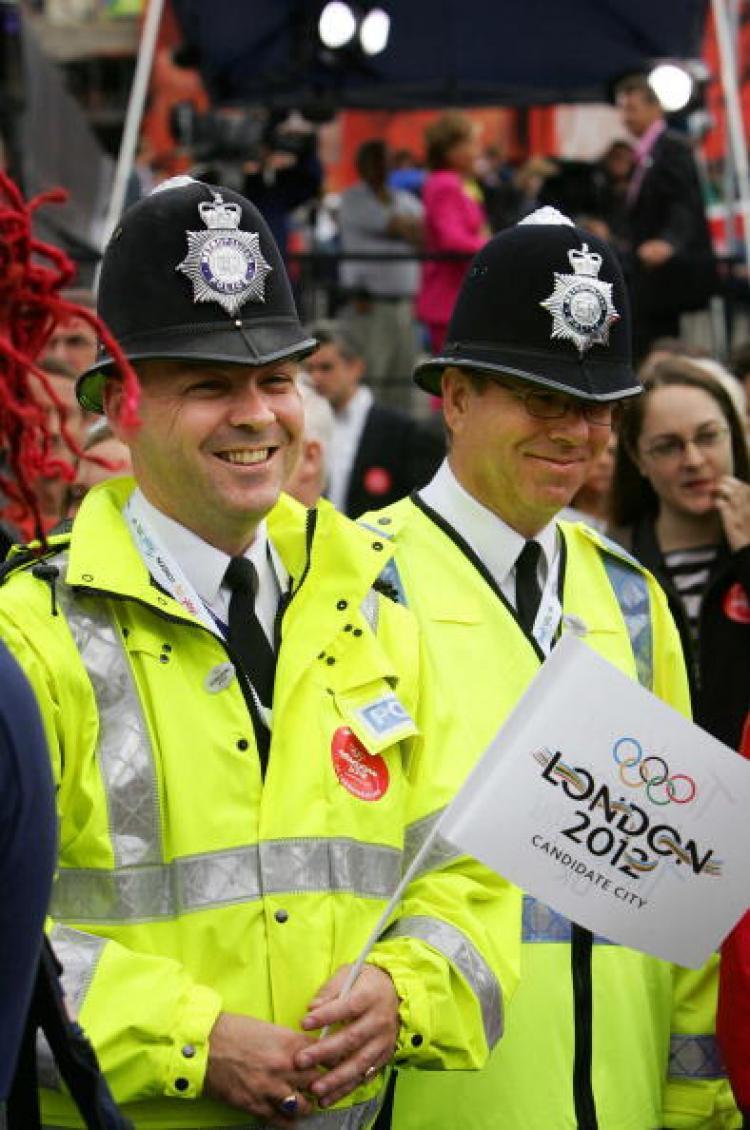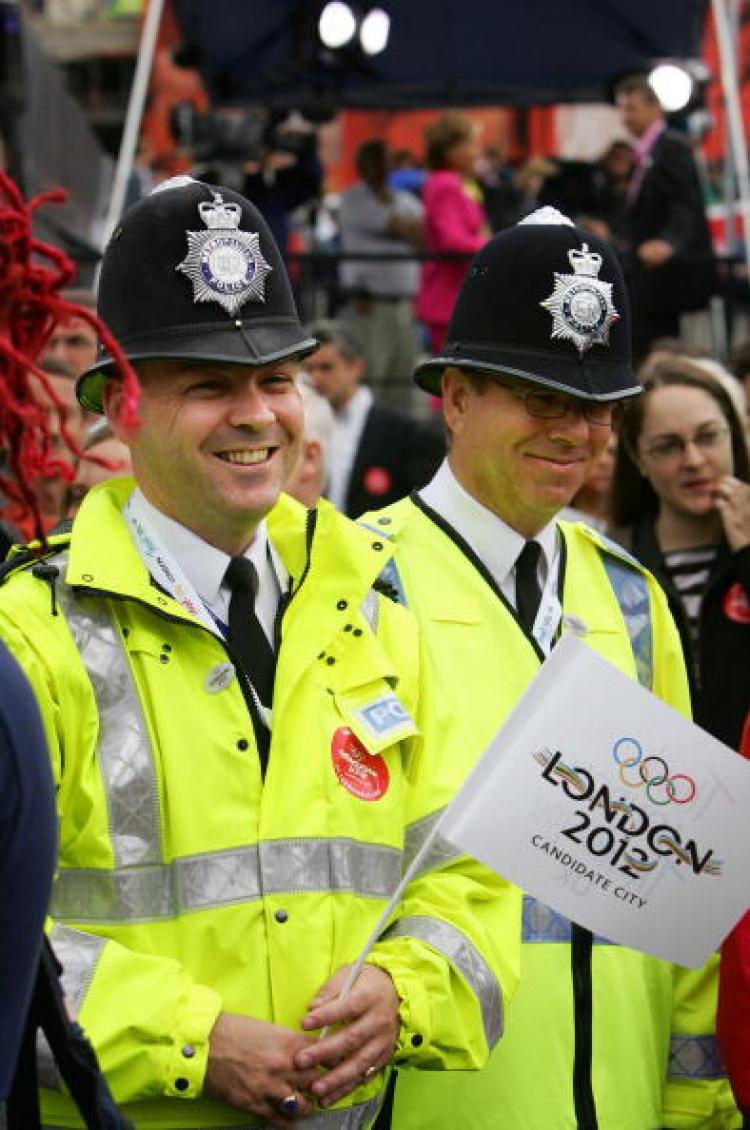Cuts Mean Fewer Bobbies on the Beat, Says Senior Policeman
President of the Association of Chief Police Officers says “services will be reduced” by post-budget spending cuts.

London bobbies show their support for London's bid for the 2012 Olympic Games in London's Trafalgar Square, 06 July, 2005. . ADRIAN DENNIS/AFP/Getty Images
|Updated:





